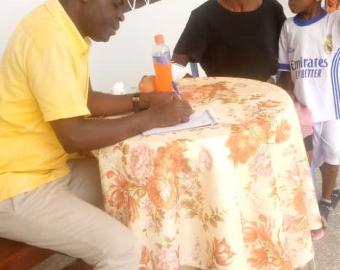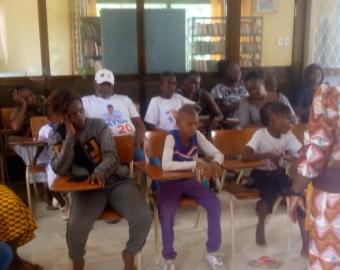The project, targeting adults and children living with HIV/AIDS (#40), focused on addressing both health and socio-economic challenges to improve their well-being. Initially, these individuals often faced marginalization, lack of support from their families, and difficulties in sustaining their basic needs.
Through a combination of health education, medical care, social support, and income-generating activities, the project has significantly transformed this reality. Monthly awareness, sessions led by a doctor, improved patients’ understanding of the importance of regular anti-retroviral intake and kidney health. Regular medical visits, coupled with CD4 viral load checks every six months, ensured continuous health monitoring and better adherence to treatments. Monthly counselling provided emotional support, helping patients cope with their condition and build resilience. Family visits and festive gatherings fostered community and family bonds, promoting patients’ sense of belonging and esteem within their families. A monthly food supply (milk, moringa, sugar, rice, corn), ensured better nutrition, crucial for immune support, making HIV side effects less severe. The enrolment of seven children in school created opportunities for growth and social integration, impacting the families’ overall stability and future prospects. The expansion of the noviciate hen house provided income-generating opportunities, allowing the project to sustain its support activities better.
As a result of these initiatives, patients experienced enhanced family relationships and a newfound sense of dignity and purpose. They gained practical knowledge on HIV management, leading to better health outcomes. Improved psychological support strengthened both their mental and physical resilience, while family engagement helped rebuild self-esteem and community acceptance. In summary, the project has enabled significant improvements in the quality of life for HIV/AIDS patients, restoring hope, stability, and well-being for them and their families

